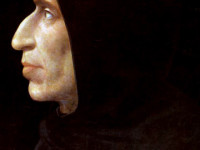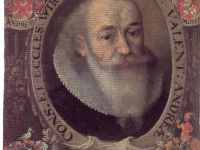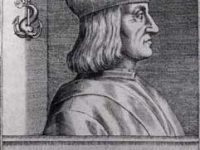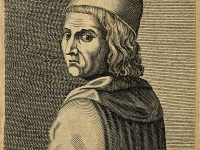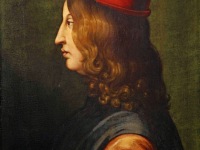Girolamo Savonarola’s Bonfire of Vanities
On February 7, 1497, Florentine followers of Dominican priest Girolamo Savonarola burned a bonfire of vanities. Supporters of Savonarola collected and publicly burned thousands of objects such as cosmetics, art, and books in Florence, Italy, on the Mardi Gras festival. Other targets included books that were deemed to be immoral, such as works by Boccaccio, and manuscripts of secular songs, as well as artworks, including paintings of Sandro Botticelli. “The Pope may…
Read more

